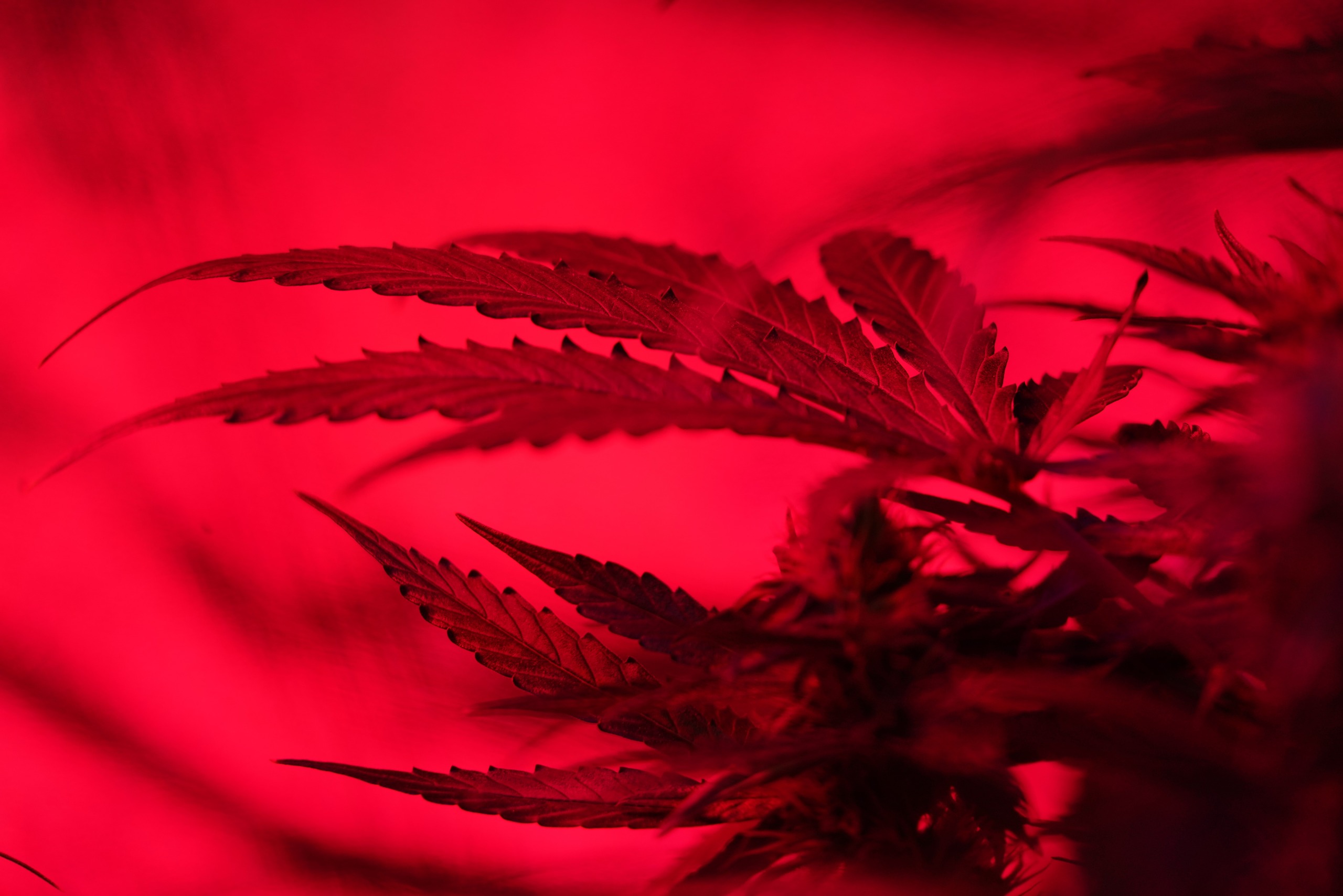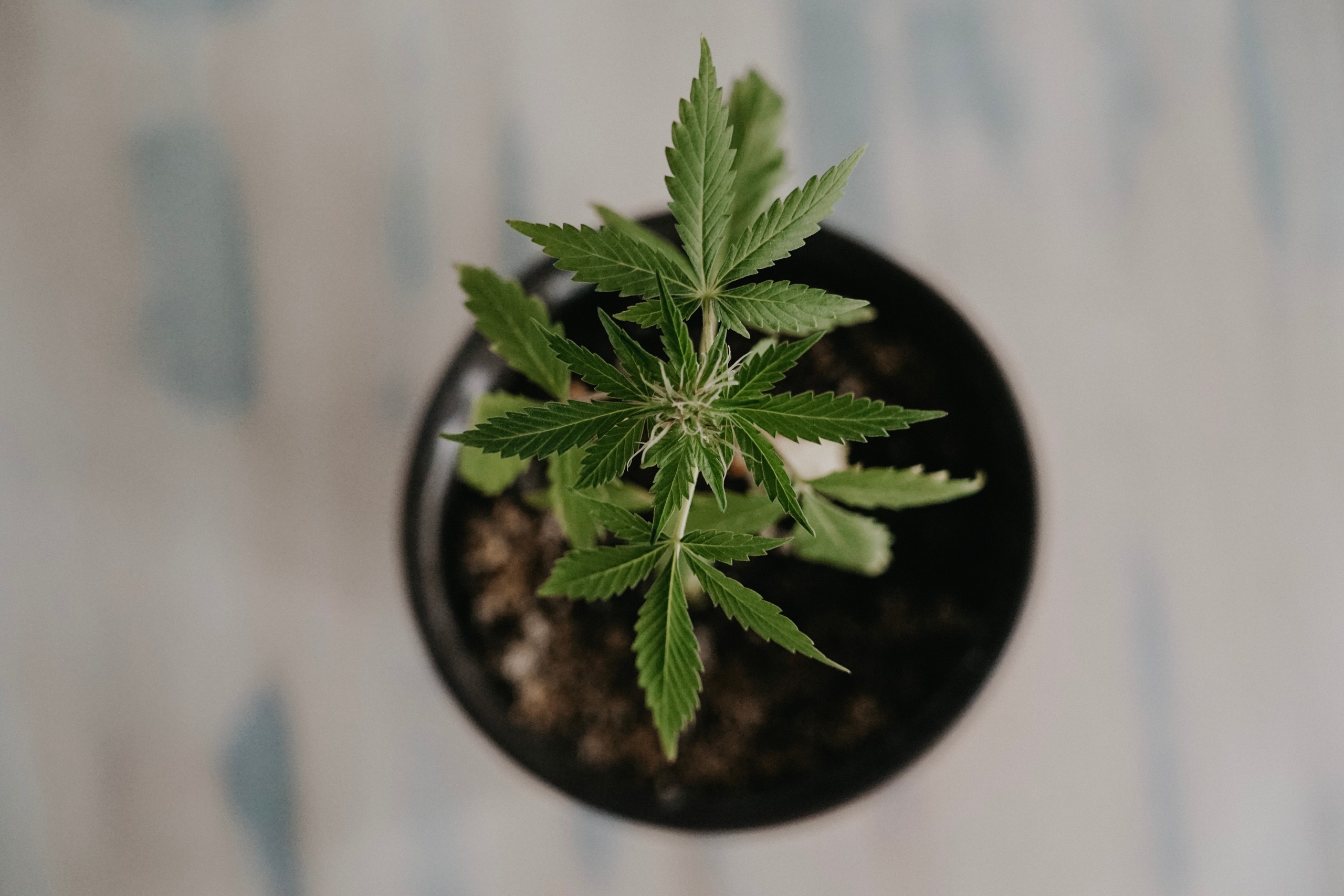

Cannabis crops require various nutrients to remain healthy and produce high quality bud. This includes nutrients like nitrogen, calcium, and phosphorus. When a plant does not get the required amount of phosphorus, the plant will suffer.
Knowing what to look for when a cannabis plant is lacking a nutrient like phosphorus is the first step to repairing a deficiency. After all, one cannot fix a problem if they do not know what all the problem entails.
Phosphorus is one of the nutrients required by plants to grow and remain healthy. According to Plant and Soil Sciences, “Phosphorus is a component of the complex nucleic acid structure of plants, which regulates protein synthesis. Phosphorus is, therefore, important in cell division and development of new tissue.”
This naturally occurring nutrient is supplied to plants in nature by dead plant matter, illustrating a circle of life. However, in a commercial grow environment, dead plant matter is kept out of the soil or soil alternative as a way to deter pests such as aphids and fungus gnats. Instead, growers will add phosphorus to their feeding regime.

Cannabis plants require phosphorus to grow. This nutrient is absorbed through the roots and is responsible for helping the plant develop new tissue, which is a vital part of natural growth, and repairing any damaged parts caused by pests, viruses, or natural forces like wind. According to the Iowa State University Extension and Outreach, “Roots are able to absorb only the nutrients that come into contact with living and active cells, so P uptake is dependent on the condition of a plant’s root system.”
Phosphorus is an essential nutrient for cannabis plants. Without it, plants can become underdeveloped and susceptible to a variety of pests, pathogens, and other problematic items. Even if a plant with a phosphorous deficiency does not contract a pathogen or attract pests, it will still produce lower yields.
According to the Utah State Extension Office, a phosphorous deficiency is most common around flowering. It is important to note that nutrient feeding regimens should be adjusted as the plants grow, with additional tweaks depending on the needs of the individual strain also being necessary. Thankfully, cannabis plants will display various signs of a deficiency, growers just need to know what to look for to correct the problem before it escalates.
A phosphorous deficiency can manifest in quite a few different ways. Some of these symptoms can individually mimic other nutrient deficiencies, so it is important to look at the whole picture when diagnosing a phosphorous deficiency.
First and foremost, look at the leaves of the plant. Cannabis plants with a phosphorous deficiency will exhibit a blue tint rather than green. The lower leaves will also develop blotches, typically coppery colored ones, before dying off and falling.
A cannabis plant with a phosphorous deficiency will see growth and development slow. This can be especially detrimental to plants that are in the vegetative stage of their lifecycle. However, flowering plants can experience this symptom as well.
It is important to note that cannabis plants with a phosphorous deficiency will become susceptible to viruses and pests. Think about a plant’s capability to ward off pathogens similar to our immune systems. If we do not get the proper nutrients to remain healthy, we are susceptible to diseases. The same is true with cannabis plants.

Ready to learn more about cannabis cultivation? Verne Bio’s Knowledge Center is the perfect place to expand your knowledge about this incredible plant. From viruses and viroids to cultivation tips and tricks, Verne Bio’s Knowledge Center has something to help every grower learn something new.
Readers can also get new content delivered right to them with the Verne Bio newsletter. Simply sign up using the form located on our home page to get information about sales, new products, and the latest Knowledge Center articles delivered right to your inbox. What could be easier?
Learning about cannabis doesn’t have to be a headache. Verne Bio’s Knowledge Center puts cannabis education at your fingertips. Whether you are new to the industry or an old pro, the Knowledge Center has something for everyone.
Works Cited
Extension Utah Pests. “Nutrient Deficiencies | USU.” USU Extension Services, N/A, https://extension.usu.edu/pests/ipm/notes_ag/hemp-nutrient-deficiencies. Accessed 20 November 2023.
Iowa State University Extension and Outreach. “Phosphorus Basics | Integrated Crop Management.” Integrated Crop Management, 2023, https://crops.extension.iastate.edu/encyclopedia/phosphorus-basics. Accessed 20 November 2023.
Lacy, Steve. “Loud Clouds.” Loud Clouds, 2 October 2022, https://loudclouds.co/wp-content/uploads/2016/07/marijuana-deficiency-chart-jorge-cervantes.jpg. Accessed 19 November 2023.
Plant & Soil Sciences. “Importance of Phosphorus to Plants | Soils – Part 6: Phosphorus and Potassium in the Soil – passel.” Plant & Soil Sciences eLibrary, N/A, https://passel2.unl.edu/view/lesson/0718261a1c9d/2. Accessed 19 November 2023.

to receive updates and news on our products, events and promos!